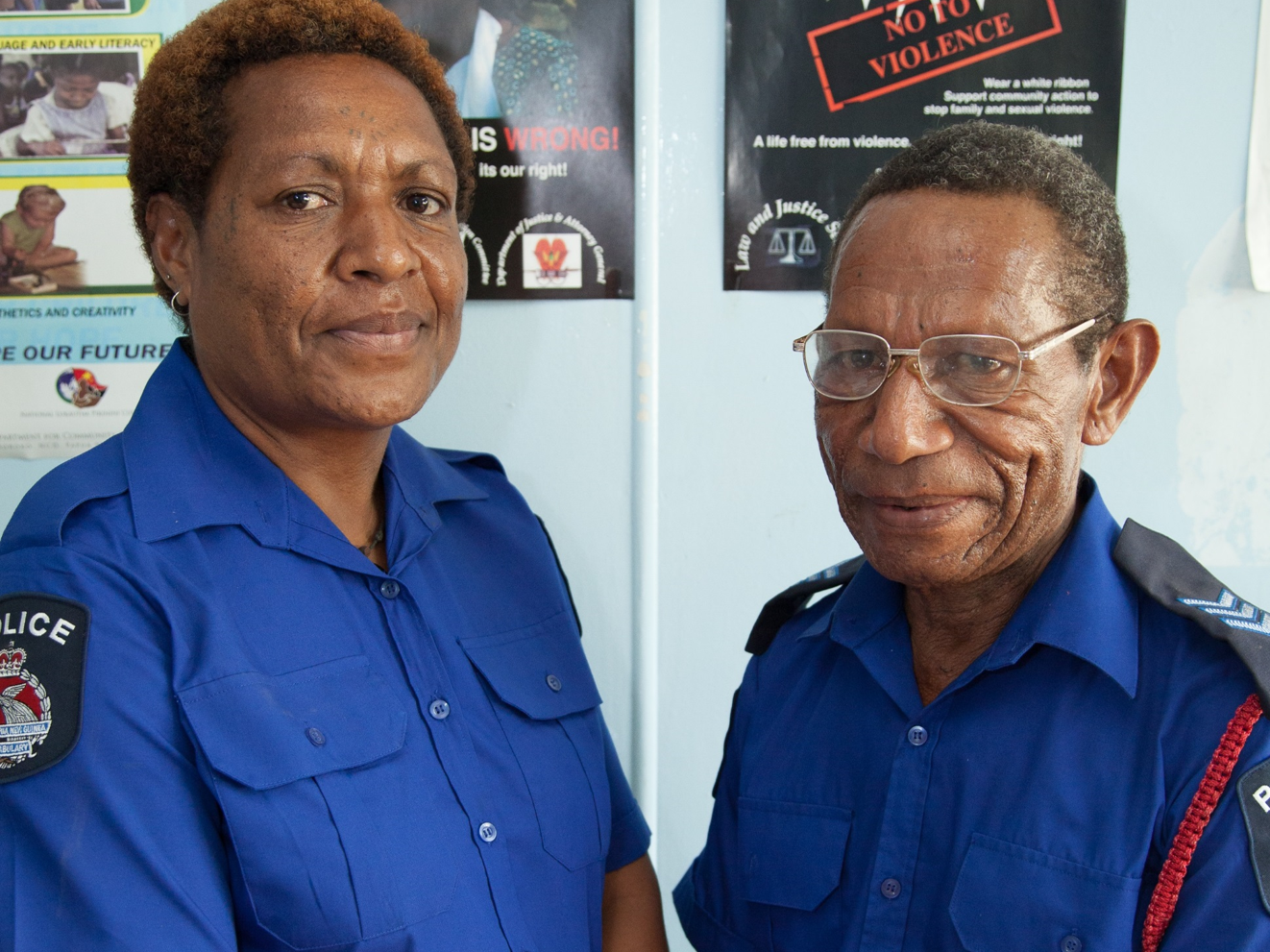Helping outside the spotlight: the AFP mission in PNG
Posted By David Connery on August 6, 2014 @ 12:15
While the nation’s attention is on the difficult operation being undertaken by Australian Federal Police officers in the Ukraine, it’s worth reflecting on the other major international missions that our police are performing overseas today.
Those missions usually bubble along without much attention—which is good in a way, but the work deserves more than that.
Karl Claxton and I have recently spent two weeks with such a mission in Papua New Guinea. Around 50 additional AFP officers from the International Deployment Group were deployed here late last year [2], and they’re now working in front-line policing positions with their counterparts in the Royal Papua New Guinea Constabulary (RPNGC) as advisors, mentors and planners.
Prime Ministers Rudd and O’Neill conceived the AFP’s current mission—an extension of a program running since 2008—in July 2013 [3].
Naturally, there’s something in the enhanced arrangement for both sides. For PNG, it’s visible action against crime—a priority for their government. For Australia, it’s about long-term engagement in a country of particular importance to its interests—and the small matter of an immigration-detention facility on Manus Island.
Regardless whether that facility is required into the future, there’s certainly going to be a need to attend to our core interests for a long time to come.
That’s because the challenges [4] faced by police in PNG are systemic, formidable and confronting [5] (PDF). But key officers in the RPNGC know this, and they’ve told us of their desire to become more effective.
The Commissioner, along with the senior officers and officials interviewed for this project, uniformly singled out the need for improved police discipline early in our discussions. They explained that their constables lack some of the basic skills and equipment required for community policing and investigations. They want to improve their relationships with the community. They want to see corruption beaten, and they want to be part of that challenge. Those we’ve met are also all supportive of the AFP’s presence.
The RPNGC demonstrate a willingness to embrace new innovations. One example is a new cell-management system in PNG’s second largest city Lae, which has been built with some AFP funding and support from the local university. It’s a testament to what can be done. I met the constable managing it, Nimrod, during my visit to the Lae Metro Police Station last week. He uses the system with ease and he’s clearly proud of it. So AFP efforts are having an effect—but the depth and sustainability of that effect is hard to estimate at present.
Managing expectations is another challenge for the AFP mission: the expat community longs for responses to crimes against their businesses; all families want violence reduced; and locals want the excesses of their countrymen—whether police or civilian—brought under control.
But the AFP has neither the mandate nor numbers to address all of those community concerns in the short term. That’s undoubtedly a source of frustration for all, but that’s the reality. The AFP don’t have executive powers here—they can’t make arrests or direct RPNGC officers—due to a 2005 PNG Supreme Court case that ruled aspects of an earlier police partnership unconstitutional [6] (PDF). They advise, influence and provide material support where they can. The early indicators of the AFP’s impact are positive, although definitive metrics are hard to provide, and there are several areas where modest additional effort appear likely to yield large benefits.
Based on our research, Karl and I will now produce a report on the future of AFP’s cooperation and engagement in PNG. We don’t intend to evaluate the current operation—we don’t have the data or resources. Instead, we want to think hard about the trajectory of the crime and order situation in PNG, and how that’s going to challenge PNG and Australian interests over the next 5–10 years. From what we’ve seen over the last two weeks, meeting that challenge and returning PNG’s situation to a positive long-term trend will require a sustained commitment and constant reassessment of the mission and its resources. But more on that later.
David Connery is a senior analyst at ASPI. Image courtesy of Flickr user Department of Foreign Affairs and Trade [7].
Article printed from The Strategist: https://aspistrategist.ru
URL to article: /helping-outside-the-spotlight-the-afp-mission-in-png-2/
URLs in this post:
[1] Image: https://aspistrategist.ru/wp-content/uploads/2014/08/png-police-4.png
[2] late last year: http://www.afp.gov.au/media-centre/news/afp/2013/december/50-extra-afp-officers-now-in-papua-new-guinea.aspx
[3] July 2013: http://www.theaustralian.com.au/national-affairs/immigration/support-builds-for-asylum-site-on-manus/story-fn9hm1gu-1226679833196
[4] challenges: http://www.abc.net.au/correspondents/content/2014/s3997174.htm?site=brisbane
[5] systemic, formidable and confronting: http://www.inapng.com/Police%20Review%20Report%20final.pdf
[6] unconstitutional: http://www.securitychallenges.org.au/ArticlePDFs/vol4no2DinnenandMcLeod.pdf
[7] Department of Foreign Affairs and Trade: https://www.flickr.com/photos/dfataustralianaid/10714048234/in/photolist-hjLigy-hjJGpT-hjJe9v-hjJh8g-hjJR7J-hjJKJu-hjJVBd-hjKRwg-hjJcxK-hjL6Nx-hjJXKy-hjJrN8-hjKC3c-hjKJTX-hjKNQz-hjKQhH-hjJPPU-hiNdE3-hkqpf1-hm1sU6-hk3Dh4-hm1A9g-hkHWo9-hk4ij7-hggMhb-hiKaNh-hiJVzM-hggFDh-hiL4HB-hggzP1-hkPe7S-hkQym8-hkNYrC-hkNQSv-hkPCLJ-hkPtmH-hkKhXp-hkQsYK-hkQ6a4-hkPRC7-hkP9qW-hiJEFZ-hiK9yw-heYaFa-heYoJK-hgzxAh-heYu89-hgzERj-hgzprE-hgze9r/
Click here to print.
